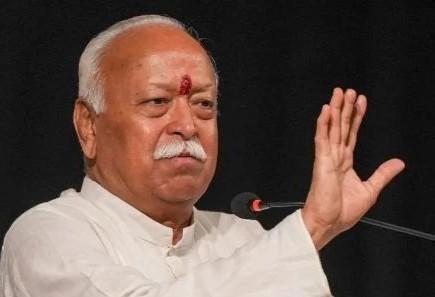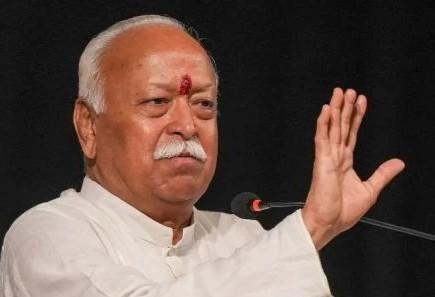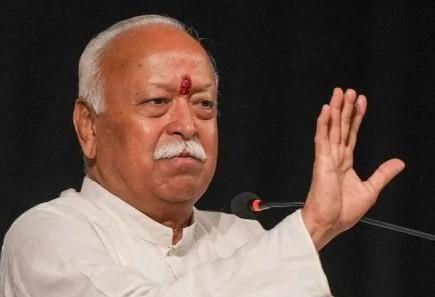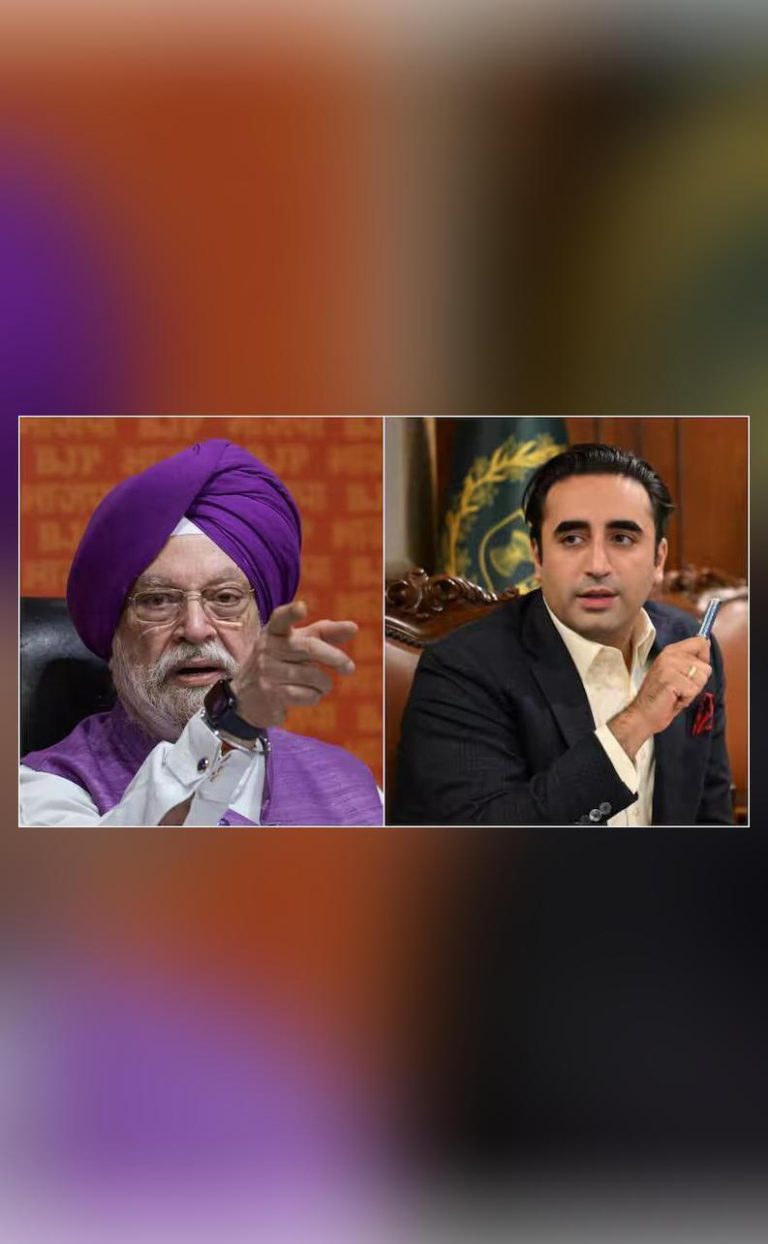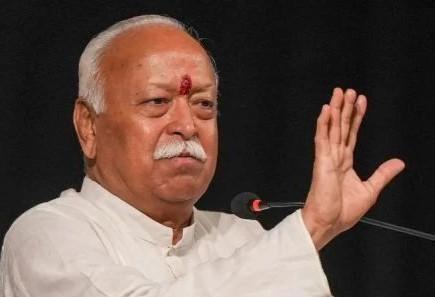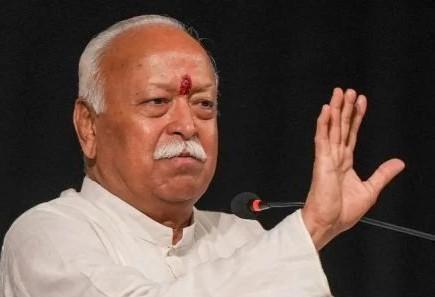
Title: If Someone Turns to Evil Then We’ll Teach Lesson: Bhagwat on J&K Attack
In the wake of the recent terror attack in Pahalgam, Jammu and Kashmir, RSS chief Mohan Bhagwat has sparked a controversy with his statements on the ideal way to deal with “oppressors and hooligans”. While emphasizing that non-violence is India’s religion, he also stressed the importance of teaching a lesson to those who resort to violence. The statement has raised eyebrows, with many questioning the role of violence in mitigating violence.
The attack, which took place on July 11, resulted in the loss of several lives and left many injured. The incident has sent shockwaves across the country, with the government and security forces launching a massive operation to apprehend the perpetrators. In the midst of this turmoil, Bhagwat’s comments have added fuel to the debate on the effectiveness of violence as a means to counter terrorism.
Bhagwat’s statement, which was made during a public event, was conveyed through a video message. In the message, he said, “We never harm or disrespect our neighbours, but if someone is bent on being evil, what is the cure? The king’s duty is to protect the people, and he will do his duty.” He emphasized that “non-violence is India’s religion”, but added that it is equally important to teach a lesson to those who resort to violence.
The RSS chief’s comments have been met with both criticism and support. While some have questioned the wisdom of advocating violence as a means to counter terrorism, others have argued that the statement was taken out of context and that Bhagwat was merely emphasizing the need for the government to take a firm stance against terrorism.
The debate on the effectiveness of violence in countering terrorism is a complex and contentious issue. Proponents of violence argue that it is the most effective way to deter terrorist groups and protect national security. They point to the success of military campaigns against terrorist groups in countries like Afghanistan and Iraq as evidence of the effectiveness of violence.
On the other hand, opponents of violence argue that it only serves to perpetuate a cycle of violence and that it is not a sustainable solution to the problem of terrorism. They point to the countless examples of violence being used to counter violence, only to see the problem persist or even worsen.
Bhagwat’s statement has also raised questions about the role of the government in dealing with terrorism. Critics argue that the government has a responsibility to protect its citizens and that it is the duty of the state to take a firm stance against terrorism. They argue that the government’s failure to do so can only embolden terrorist groups and create an environment of fear and uncertainty.
On the other hand, supporters of the government argue that the state has a complex and difficult role to play in dealing with terrorism. They argue that the use of violence against terrorist groups is often necessary to protect national security and that the government must take a balanced approach to dealing with the problem.
The statement has also sparked a debate about the nature of Indian society and the values that underpin it. Bhagwat’s emphasis on non-violence as India’s religion has been met with criticism from some quarters, who argue that the statement is at odds with the country’s history and culture.
India has a long and complex history of dealing with terrorism, dating back to the early 20th century. The country has faced numerous terrorist attacks, from the INA’s rebellion against British rule to the more recent attacks by groups like the Lashkar-e-Taiba and the Jaish-e-Mohammed.
Despite these challenges, India has a strong tradition of non-violence and tolerance. The country’s constitution enshrines the right to life and liberty, and the government has a duty to protect its citizens. The use of violence as a means to counter terrorism is therefore a controversial issue, with many arguing that it is at odds with the country’s values and principles.
In conclusion, Bhagwat’s statement on the J&K attack has sparked a controversy that highlights the complex and contentious nature of the debate on terrorism. While some have questioned the wisdom of advocating violence as a means to counter terrorism, others have argued that the statement was taken out of context and that Bhagwat was merely emphasizing the need for the government to take a firm stance against terrorism.
Ultimately, the debate on terrorism is a complex and multifaceted issue that requires a nuanced and balanced approach. The government has a duty to protect its citizens, but it must also do so in a way that is consistent with the country’s values and principles. The use of violence as a means to counter terrorism is a controversial issue that requires careful consideration and debate.
News Source: https://youtu.be/SpAKVWl5wII
